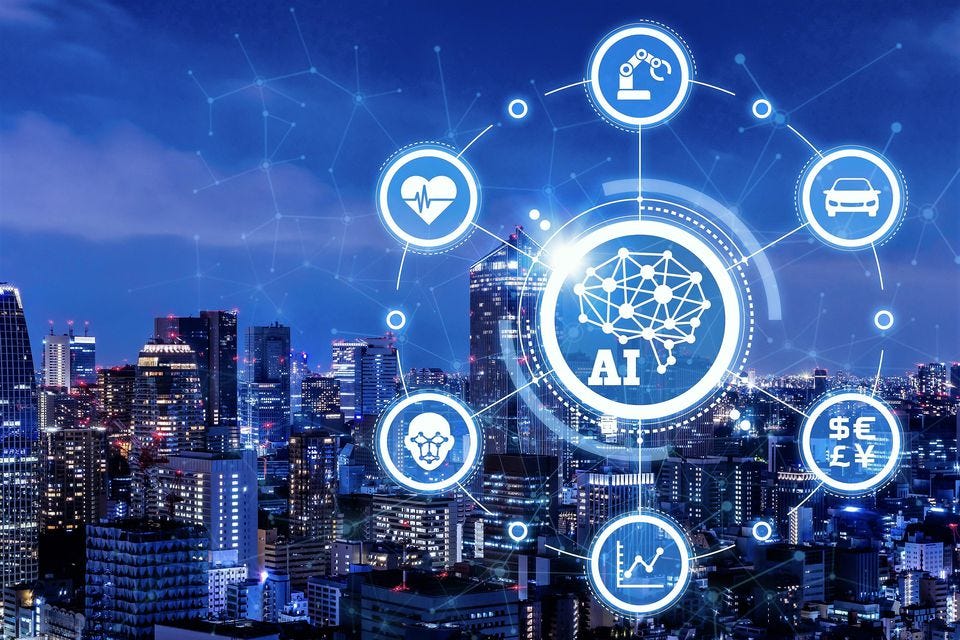A.I. is Good, but Invest in PEOPLE
Clickbait titles and the media’s need for increased viewership has hijacked the subject of A.I.. It has instilled widespread fear about the issue and misinformed the public as well. Nowadays, the media’s sole purpose is to generate profits, not inform the general public on crucial matters. Thus, artificial intelligence has been portrayed as impending doom, a time bomb. Take the title published by The Independent
Understandably, the media does exaggerate all some skepticism of artificial intelligence. The most significant risk that emanates from artificial intelligence is its ability to multiply errors coupled with the lack of understanding from computer programmers on how computers learn. A Business Insider article from July 1, 2015, showed that Google in the same year incorrectly tagged two African-Americans as gorillas through its photo algorithm. Google immediately issued an apology and disabled its algorithm to categorize primates as gorillas or monkeys. The way Google handled the problem showed the most significant hazard that has arisen from machine-learning: the “black box” phenomenon. A “black box” is a figurative “box” within an artificial intelligence program where machine-learning occurs. The only issue? It is near impossible to decipher what is happening inside the “box.” It would take an incredible amount of computer programmers and human resources to read through the code, line by line with millions of new lines written by the program every single second. Since Google’s programmers could not enter the “black box” and pinpoint the issue due to technological or financial limits, words associated with primates were banned. To this day, this issue has not been solved. A modern computer’s processing speed furthermore escalates this issue. Illustrated through Moore’s Law, a computer programming law invented by Gordon Moore shows that every year the overall computer processing speed will double. Thus, the capabilities, storage, and processing power of computers grow exponentially. Hypothetically, a computer program would take one second to code two thousand lines of code back in the year 2000, would now take only approximately 4/100000th of a second in the year 2018. Every second, astronomical amounts of code is processed, taken in and churned into new knowledge. Even a small, unintentional mistake caused either by Google’s coders or by the computer itself can grow exponentially within the system. Because artificial intelligence is just a computer, it absorbs what we teach. Even one small mistake can wreak havoc on the program as it capitulates the issue into millions of problems.


Nonetheless, artificial intelligence will create new opportunities for humanity. It will spur changes in the way society interacts and communicates as technological progress increase in unprecedented ways. The rapid growth of artificial intelligence in recent years is relatable the Internet during the late 90s. It was impossible to imagine companies like Blockbuster, posting profits upwards of $450 million in 1995, becoming bankrupt just 20 years later. It was also unimaginable to predict companies with the power and scale of Amazon, or Netflix, during the dawn of the internet. The quality of life of the average consumer in the United States has increased dramatically since the advent of the Internet. Artificial intelligence could follow the same trend of improving the public’s lives. The boon of modern artificial intelligence is unprecedented, making it impossible to imagine what society in the future will make of it. That uncertainty of the future of artificial intelligence the most beneficial part of it. Once the technology gets going, it will never stop. Artificial intelligence needs a new company, similar to Google or Facebook’s impact on the Internet, to create and provide user-friendly platforms for the public. Through the platforms, everyone can access the power of artificial intelligence and use it their lives. It will improve the field of robotics, drastically preventing lives lost, or change the landscape of the medicinal field, where artificial intelligence could learn how to combat diseases and make new drugs. Like the Internet, the world is limitless with artificial intelligence.
The quality of life of the average consumer in the United States has increased dramatically since the advent of the Internet. Artificial intelligence could follow the same trend of improving the public’s lives.
Although there is no upper ceiling for artificial intelligence, we need to be cautious about the speed of its growth. Artificial intelligence development must slow down to allow for an ample amount of time for industries to help people in the labour force who are at risk of losing their jobs transition into new careers. There needs to be regulations to ensure that companies do not take extremely risky shortcuts when it comes to artificial intelligence. As seen with error magnification, even the slightest of mistakes can offend, or cause detrimental harm to many. Lessons also must be taken from the rapid expansion of the Internet. Companies developing artificial intelligence should offer non-profit programs that help people who lose their jobs due to artificial intelligence. These programs would teach individuals whose jobs are at risk to garner skills needed to find new jobs or help them start a new career path. Social programs are necessary as income inequality has already teared up society in the past with technological revolutions. The same pattern is showing. Predominantly shown in developed Western nations, we are shifting away from liberal values. Excessively, people and nations are gravitating towards autocratic, strongmen states to provide stability within the now occurring “Fourth Industrial Revolution.”
